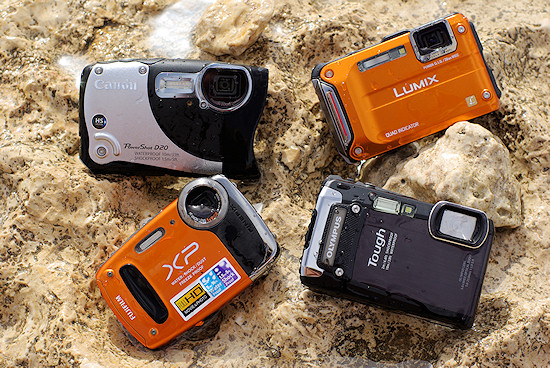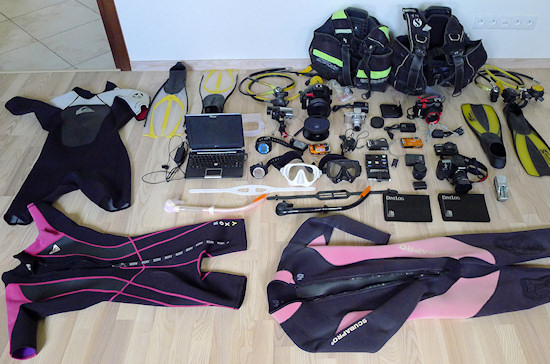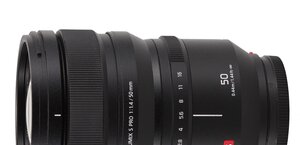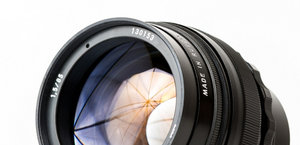Waterproof cameras test 2012 - part I
1. Introduction
Please Support UsIf you enjoy our reviews and articles, and you want us to continue our work please, support our website by donating through PayPal. The funds are going to be used for paying our editorial team, renting servers, and equipping our testing studio; only that way we will be able to continue providing you interesting content for free. |
- - - - - - - - - - - - - - - - - - - - - - - - - - - - - - - - - - - - - - - - - - - - - - - -
Underwater tests in Sharm el-Sheikh |
Holidays are approaching fast; small wonder we have been to Egypt for the fifth time to test the newest models of waterproof compact cameras. There are more and more such products every year – that fact forced us previously to divide our test into two parts because during one trip we weren’t able to test all of them. The situation repeated itself this year – since January more than a dozen of new underwater cameras models have been launched. Traditionally we decided to choose the most interesting ones for the first part of our test, taking into account their availability – not all January and February novelties were available in April, when we prepared our journey. We selected the following models:
- Canon PowerShot D20,
- Fujifilm FinePix XP50,
- Olympus Tough TG-820,
- Panasonic Lumix DMC-FT4.
 |
When our choice was made and all the devices got to our editorial office we only had to pack our bags and let me tell you it is becoming increasingly difficult because during our trips we try to gather materials for different articles about underwater photography.
Let’s look at this chart and compare the parameters of the tested cameras. It shows that the waterproof record, belonging to the Panasonic FT3, wasn’t broken and the new FT4 model is characterized by the same degree of water resistance; the competitors allow you to dive up to 5 or 10 meters under the surface. Despite that fact we decided to enlarge the testing procedure we used in our last year test and we actually checked how deep you can really dive with the tested cameras. It happens very often that the depth declared in specifications can be exceeded. That’s why we added a new category to our summary – ‘waterproofness’. It means the real maximum submerging depth of a given camera where you can still take photos. That’s why in the ‘parameters’ category we don’t take into account submerging level declared in specifications. We just want to emphasize the fact that exceeding a maximum depth, permissible by the producer, might result in damaging the camera or losing the warranty; if you decide to take such a risk you should be aware you do it on your own responsibility.
The rest of our testing procedure didn’t change and, like one year ago, we are going to assess the following features:
- Parameters: 0–5 points,
- Use, cleaning, wear and tear: 0–4 points,
- Additional features: 0–3 points,
- Underwater usage: 0–5 points,
- Underwater images quality: 0–10 points,
- Underwater movies quality: 0–10 points,
- Dry land images quality: 0–10 points,
- Dry Land movies quality: 0–10 points.







